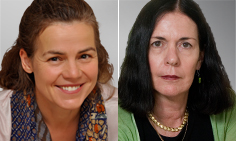DESPITE more than a decade of medical opposition, Australia continues to imprison more child asylum seekers than ever.
Last December, we volunteered as medical observers to visit immigration detention facilities in Darwin that were at that time holding 340 children. A report about the visits has been released.
The human face of what we observed was harrowing but unfortunately it was nothing new.
Behind a double-layered barbed wire and electric fence, a couple pleaded for help for their young toddler, a sturdy dark-haired child with a lifeless expression: he had stopped eating and was sleeping poorly. His mother had the dissociated “thousand yard stare” typical of war veterans and other traumatised people.
This family is not getting mental health support, as they were told by the centre’s medical clinic the child was “normal”. This will end badly.
Alone in a sandpit was another toddler whose story we do not know. He stared vacantly into space, seeming frozen. There was no-one around to gather him up and make it all right.
Our immigration and security hosts laughed and commented on how “cute” this child was. There was no understanding of the abnormality of his predicament.
Typical of the teenagers we met was a boy proficient in many languages, learnt during his 12 months in detention. He had been regularly summonsed to act as an interpreter, unaware that he could refuse such requests. He was wearing a red wrist band with the word “resilience” etched on it.
The irony was that he was burnt out, depressed and expressed having no hope of any sort of future — “we are between the sky and the sea, they just leave us hanging”.
Almost all of the pregnant women we spoke to were clearly depressed. Many had been separated from their families who remained offshore. New mothers, too, were withdrawn, apathetic and not interacting with their babies. However, these new mothers were being offered no psychiatric care.
There was glaring evidence that services promoted by the detention centre executive were not, in fact, being provided, including new children’s bicycles (with price tags still attached) and painting activities happening during our “official” visit that we considered were obviously for show.
We observed the use of boat numbers instead of names in the medical clinics despite assurances this dehumanising practice had stopped. Asylum seekers told us that the food in the mess improved for the days of official visits.
The children detained in Darwin do attend school. However, when they return they are locked up again. What sort of mixed message is this? Daily these children witness the despair, powerlessness and humiliation of their parents. This situation will inevitably result in harm to their mental health, particularly if these families are removed to isolated off-shore countries.
The AMA, the Australian colleges of psychiatrists, physicians and GPs and the Australian Medical Students’ Association have all condemned the practice of prolonged detention of asylum seekers. They have also petitioned governments with grim warnings of the harmful effects on physical and mental health.
The unanimous conclusion of all these medical bodies is that children should not be kept in detention. Detention of children is also in contravention of Australia’s responsibility under the United Nations Convention on the Rights of the Child.
Children and families should be allowed to reside in the community while their applications for asylum are being processed. If people must be held in immigration detention facilities, the duration should be brief and the facilities should be located in adequately serviced metropolitan areas.
Private companies making profits from detention facilities should be held more accountable for what they claim to be offering. Medical services, particularly in maternal and mental health, need significant improvement.
All staff working in detention facilities require adequate training and supervision, including the prevention of compassion fatigue which, in such an unnatural environment, can make people’s distress invisible to staff.
Qualified interpreters should be used more frequently, and the practice of using asylum seekers, especially children, as interpreters should be ended.
Australia’s current behaviour with regards to our responsibilities for human rights and basic humanity in this matter is shameful. As doctors, not only should we do no harm, but we should also make sure no harm is done.
This despicable practice of locking children and families away out of sight and out of mind must end immediately.
Dr Emma Adams is a psychiatrist specialising in perinatal and infant psychiatry. Professor Caroline de Costa is professor of obstetrics and gynaecology at James Cook University.

 more_vert
more_vert
Those who stand by silently share equal guilt with the perpetrators of this atrocity conducted in our name.
It doesn’t help that both sides of politics love to play to public opinion and encourage negative views on asylum seekers. I remember approaching the local MLA a decade ago and being told by her that people don’t care about the mental health of children in asylum. She may be right but if political leaders could lead they might effect some changes in public attitude. As most asylum seekers are accepted as refugees we as doctors are left to look after the health fallout of their detention. It is a ridiculous state of affairs.
The task of turning the tide of public opinion in Australia back towards compassion for asylum seekers is daunting and soul destroying in the face of such apathy (at best) and fear/hatred (at worst). But it must be done.
Hopefully no one will dob me in for writing this